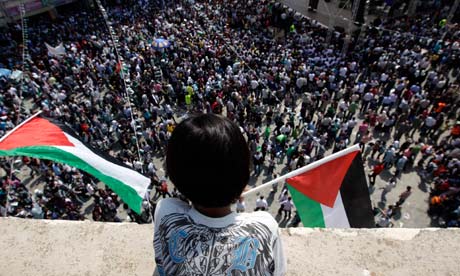Impunity Watch Reporter, Africa
KAMPALA, Uganda – Uganda’s highest court has ordered a rebel commander from the Lord’s Resistance Army (LRA), charged with 53 counts of willful murder, should be granted amnesty and released. The high court’s ruling brings an abrupt end to the county’s first war crimes trial and is a significant blow to prosecutors trying to bring charges against the LRA’s leadership.

Uganda’s Constitutional Court has ruled that Thomas Kwoyelo , a former colonel in the Lord’s Resistance Army, is eligible for immunity even though he has been charged with 53 counts of murder against civilians, kidnapping, hostage taking, robbery, and destruction of personal property. The charges stem from Mr. Kwoyelo’s participation in the LRA during the 20 year war in northern Uganda. Mr. Kwoyelo, now 39, joined the LRA in 1987, and has been accused of leading raids against several villages in northern Uganda resulting in the deaths and abductions of numerous civilians between 1992 and 2005.
Mr. Kwoyelo has denied all of the charges and petitioned the Constitutional Court for amnesty. According to AFP, in reacting to the verdict granting his client amnesty, Mr. Kwoyelo’s defense attorney, Ben Ikilai said: “He is off the hook… The constitutional court has decided that he is supposed to be released because it was discriminatory not to grant him amnesty.” Mr. Ikilai went on to add that his client is anticipating an appeal from the prosecution and they will be prepared for it.
Thursday’s decision is based on an amnesty law that was enacted in 2000 and has already been used to pardon more than 10,000 LRA fighters. Under the law, fighters who surrender and come back to Uganda peacefully will not be prosecuted for crimes they committed during the war.
According to the Ugandan government, Mr. Kwoyelo was taken into custody in March 2009 in Garamba forest in the Democratic Republic of Congo. He was arrested during a raid by regional forces against the LRA rebels who had left Northern Uganda two years earlier. When he was capture, Mr. Kwoyelo was the fourth highest ranking official in the Lord Resistance Army.
Some of the LRA’s top commanders, including Joseph Kony, have escaped capture and continue to commit atrocities in neighboring countries. Most recently, in July 2011, the LRA is suspected of killing 26 civilians and kidnapping 21 people, including 10 children in 53 different village raids in the Democratic Republic of Congo. Individually, Mr. Kory has been indicted by the International Criminal Court in The Hague for war crimes and faces a number of other charges including rape, murder, mutilation, and recruitment of child soldiers.
For more information, please see:
AFP — Uganda orders amnesty for LRA rebel commander – 22 September 2011
All Africa — Uganda: LRA’s Kwoyelo Ruling for Thursday – 21 September 2011
Amnesty International – Uganda’s amnesty for LRA commander a ‘setback’ for justice – 23 September 2011
Radio Netherlands Worldwide — Ugandan grants LRA rebel amnesty – 23 September 2011
UPI — LRA leader freed in Uganda –23 September 2011




